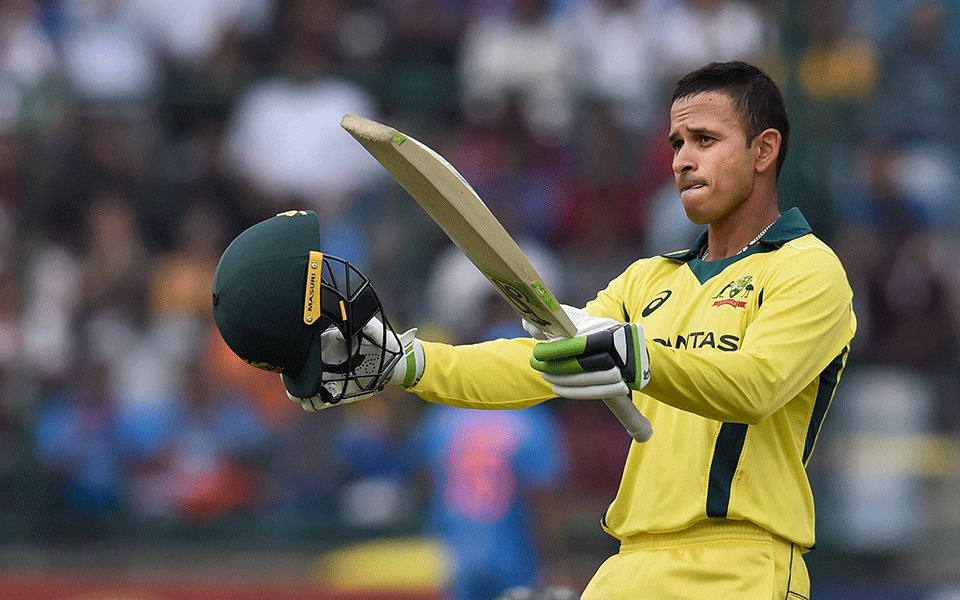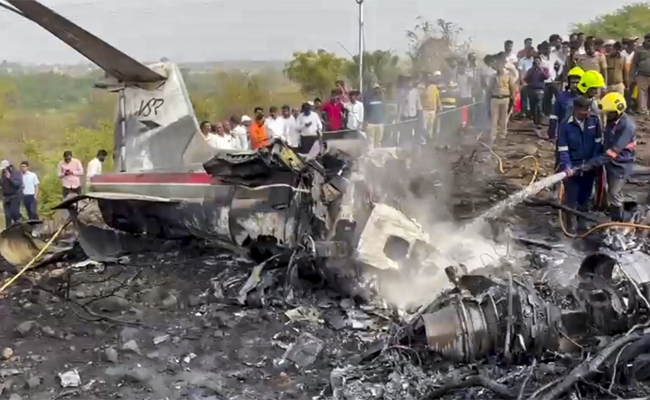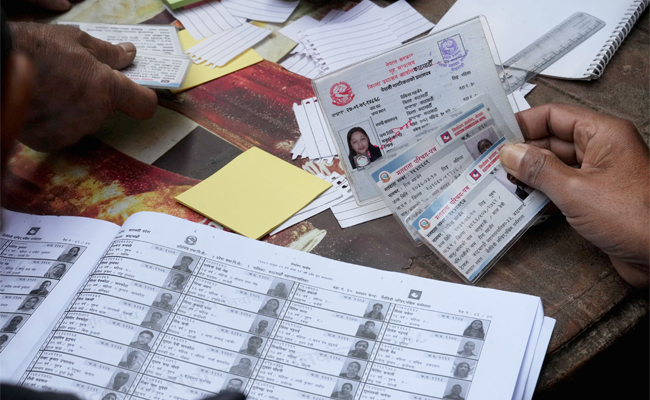New Delhi, Mar 13: India staged a decent comeback to restrict Australia to 272 for nine after Usman Khawaja continued with his imperious form by hitting his second hundred of the series in the decisive fifth ODI here Wednesday.
Khawaja, who had not scored a century before arriving to India for this series, hit an exact 100 off 106 balls and shared two big partnerships at the top of the order.
Australia were placed comfortably at 175 for one in the 33rd over and set for a kill in slog overs, but the script changed for the hosts when Bhuvneshwar Kumar got rid off Khawaja in the last ball of the that over.
The visitors added only 97 runs after that in 17 overs, surrendering the advantage, which was well-earned by Khawaja and his top-order colleagues.
The left-hander, who hit a century in Ranchi as well, first raised a 76-run stand with Aaron Finch (27) after his skipper elected to bat in hazy and overcast conditions and followed it up with a 99-run partnership with Peter Handscomb (52).
Bhuvneshwar took three wickets for 48 runs while Ravindra Jadeja (2/45) and Mohammed Shami (2/57) accounted for two batsmen each.
The Feroz Shah Kotla wicket did not have much for either spinners or pacers but was far from usual low and slow track as the Australians easily worked the ball around.
Khawaja was yet again impressive with his footwork, handling the Indian spinners nicely before being caught at shot extra cover by Kohli off Bhuvneshwar Kumar.
The left-hander hit 10 fours and two sixes before driving straight to Kohli.
Jadeja then got rid of Glenn Maxwell (1) and Shami sent back Handscomb as Australia lost three wickets in the space of 14 balls.
The tide turned in India's favour with Australia managing just 27 runs in overs between 34 and 40.
Jadeja, who replaced Yuzvendra Chahal, made a strong case for himself for inclusion in the World Cup squad with figures of 10-0-45-2.
Jasprit Bumrah was exceptional in his first eight overs giving just 14 runs but Jhye Richardson (29) spoilt his figures by creaming off four boundaries from his ninth over, providing one last push to Australian innings.
It turned out to be a forgettable day for chinaman Kuldeep Yadav who bled 74 runs in his 10 overs but dismissed dangerous Ashton Turner (20) cheaply.
Earlier, it was only Mohammed Shami who initially tested Finch with away-going and in-coming balls but once the Australia captain got his eye in, he went about his business without fuss.
Khawaja continued with his rich form, striking boundaries easily. His straight boundary, punched on the up, off Bhuvneshwar was a treat to watch.
Let the Truth be known. If you read VB and like VB, please be a VB Supporter and Help us deliver the Truth to one and all.
Pune (PTI): The Maharashtra Crime Investigation Department on Thursday questioned V K Singh, owner of VSR Ventures, which operated the aircraft involved in the Baramati crash that killed deputy chief minister Ajit Pawar, a CID officer said.
“The statement of V K Singh is being recorded,” said the CID officer, without disclosing more details about the questioning, which was still underway.
A Learjet 45 aircraft, operated by VSR Ventures, crashed near the Baramati air strip in Pune district on January 28, killing Pawar and four others.
After the plane crash, an accidental death report was registered at the Baramati Taluka police station, and the case was later transferred to the Pune CID. Earlier, the state agency had said that its focus was to ascertain if sabotage or criminal negligence led to the Baramati tragedy.
Days before V K Singh's questioning, the CID had sent a set of questions to VSR Ventures in connection with its investigation into the plane crash, according to a source.
NCP (SP) MLA Rohit Pawar had alleged on Wednesday that someone was trying to save VSR Ventures, and claimed that a preliminary probe by the Aircraft Accident Investigation Bureau (AAIB) vindicated the doubts earlier raised by him.
In its 22-page preliminary report on the air tragedy, the AAIB said the visibility at the time of the crash was below the required level. It also flagged fading marks on the runway and the presence of loose gravel on the runway surface.
A few days ago, Ajit Pawar’s son Jay Pawar had shared a purported video on social media alleging that V K Singh's son Rohit Singh was seen dozing off in the chief pilot’s seat during a flight, and demanded his immediate arrest.
He had also demanded that all aircraft of VSR Ventures be grounded till the inquiry into his father’s plane crash is completed.





